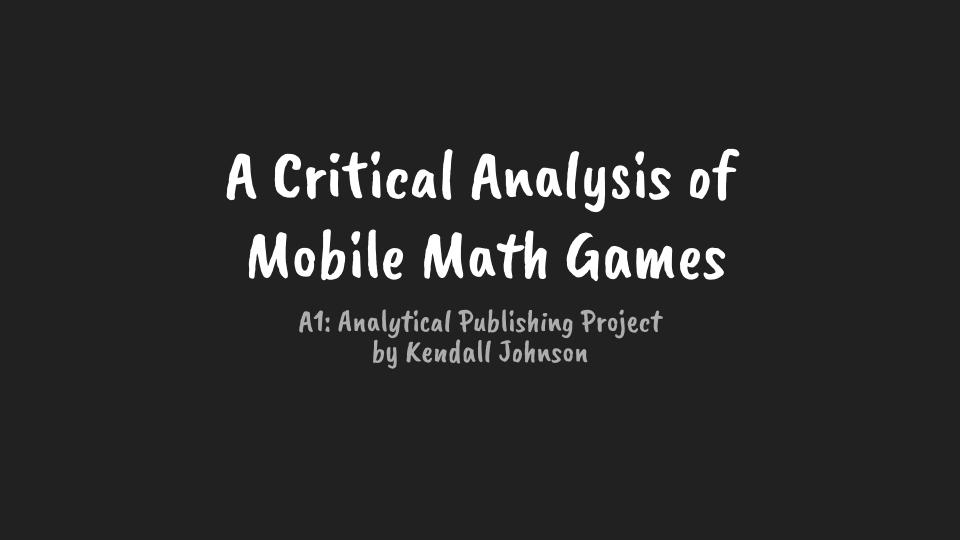Hi All! Here is my video about the benefits and drawbacks of mobile math games, as well as some considerations for using them in classroom practice.
KJ
Featuring original research and analysis on mobile and open learning published as Open Educational Resources (OERs) by professional educators enrolled in the University of British Columbia's Master of Educational Technology (MET) program. Browse and be inspired!

Posted in (A1) Analyses
Hi All! Here is my video about the benefits and drawbacks of mobile math games, as well as some considerations for using them in classroom practice.
KJ
You must be logged in to post a comment.
Hi Kendall,
Great video! Really engaging, informative and concise. I’ve often wondered about the kinds of math skills developed in other (“non-math”) games, such as certain card games (ie: Cribbage), and others classified as “problem solving” or “strategy” games (ie: pool and geometry?). My mental math would probably improve exponentially if someone designed a spin on bejeweled or tetris that included a (scaffolded) math component. Thanks!
I really like the pros and cons you’ve listed, my favourite is tracking progress because we can get to meet every learner where they are at. What are your favourite math games to use to support in-class instructions?
I use Mathletics because of it is based on the BC curriculum and you can differentiate instructions without students knowing they are working at a different level than their peers.